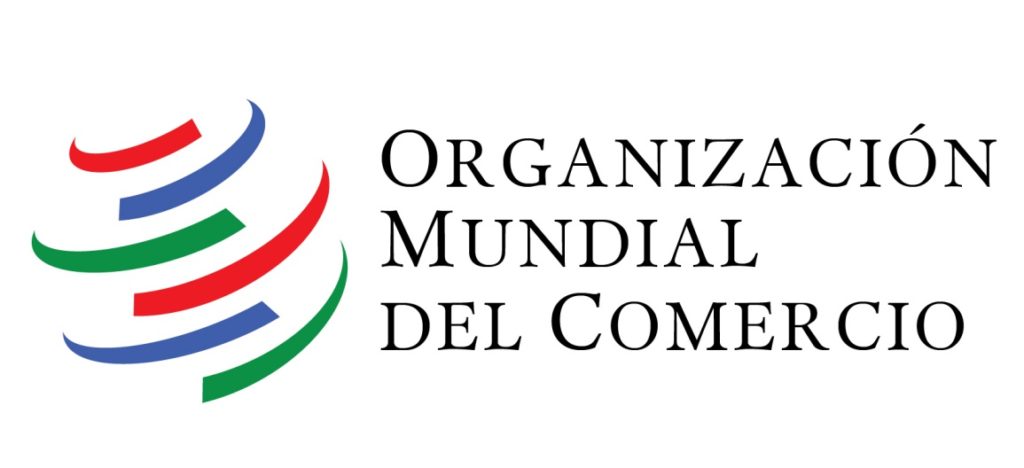ORGANIZACIÓN MUNDIAL DEL COMERCIO
Acelera tu empresa con estos consejos de expertos que cuenta sobre «Organización mundial del comercio». ¡Analiza y descubre esta TIP!
La Organización Mundial del Comercio (OMC) es un organismo internacional encargado de regular el comercio entre países y supervisar el cumplimiento de los acuerdos comerciales que se han establecido entre ellos. La OMC fue creada en 1995 y actualmente cuenta con 164 países miembros y 20 observadores. Su sede se encuentra en Ginebra, Suiza.
La OMC funciona a través de acuerdos negociados entre los países miembros que deben ser firmados por aquellos que quieran formar parte de la organización. Estos acuerdos regulan el comercio internacional de bienes y servicios y son supervisados por la OMC para garantizar que se cumplan y no se malinterpreten. Además, la OMC actúa como árbitro en caso de que se produzca una disputa comercial entre dos o más países.
Los objetivos principales de la OMC incluyen la no discriminación entre bienes de distintos países, la eliminación de obstáculos al comercio, la promoción de un mercado internacional estable y la protección del medio ambiente y la salud pública. La OMC también trabaja para ayudar a los países en desarrollo mediante una serie de programas y ofreciendo flexibilidad en el cumplimiento de los acuerdos comerciales.
En resumen, la OMC es un organismo internacional clave en la regulación del comercio entre países y la supervisión del cumplimiento de los acuerdos comerciales. Sus objetivos principales son la promoción de un comercio justo y la eliminación de barreras comerciales para favorecer la estabilidad económica y el desarrollo sostenible.
¿Qué beneficios puede aportar a un emprendedor la OMC?
La OMC puede aportar varios beneficios a un emprendedor, entre ellos:
- Acceso a mercados internacionales: La OMC fomenta el libre comercio entre países y promueve la eliminación de barreras comerciales, lo que permite a los emprendedores acceder a nuevos mercados y expandir sus negocios a nivel internacional.
- Protección de propiedad intelectual: La OMC también se encarga de proteger los derechos de propiedad intelectual en el comercio internacional, lo que puede ser beneficioso para emprendedores que desarrollan productos o tecnologías únicas.
- Arbitraje en disputas comerciales: En caso de que un emprendedor se enfrente a una disputa comercial con otro país, la OMC actúa como un árbitro imparcial para resolver el conflicto y garantizar el cumplimiento de las normas comerciales internacionales.
- Participación en foros de discusión: La OMC organiza reuniones y foros de discusión donde los emprendedores pueden compartir sus ideas y opiniones sobre el comercio internacional, así como establecer contactos con otros empresarios y expertos del sector.
En general, la OMC ayuda a crear un ambiente comercial justo y estable que beneficia a los emprendedores y a la economía global en general.
El ChatGPT puede ser utilizado por los emprendedores para aprovechar las ventajas de la OMC de varias maneras, como:
- Obtener información sobre las normas y regulaciones de la OMC: El ChatGPT puede proporcionar información detallada sobre las normas y regulaciones de la OMC y cómo se aplican a diferentes países y sectores. Esto puede ayudar a los emprendedores a comprender mejor las reglas del comercio internacional y cómo aprovecharlas para su beneficio.
- Identificar oportunidades de comercio internacional: El ChatGPT puede ayudar a los emprendedores a identificar oportunidades de comercio internacional en diferentes mercados y sectores. Al conocer los acuerdos y reglas de la OMC, los emprendedores pueden encontrar oportunidades para exportar sus productos o servicios a otros países de manera más efectiva.
- Obtener asesoramiento sobre políticas comerciales: El ChatGPT también puede proporcionar asesoramiento sobre las políticas comerciales y las regulaciones de la OMC. Esto puede ser especialmente útil para los emprendedores que deseen expandirse a otros países y necesitan entender las políticas comerciales y las regulaciones que se aplican a su sector.
- Resolver disputas comerciales: La OMC proporciona un mecanismo de resolución de disputas comerciales para los miembros. El ChatGPT puede ayudar a los emprendedores a entender cómo funciona este proceso y cómo pueden resolver disputas comerciales con otros países.
En resumen, el ChatGPT puede ser utilizado por los emprendedores como una herramienta para obtener información y asesoramiento sobre las regulaciones y políticas comerciales de la OMC, identificar oportunidades de comercio internacional, resolver disputas comerciales y aprovechar las ventajas del comercio internacional.
EJEMPLO PRÁCTICO
Imaginemos que eres un emprendedor que desea exportar productos a varios países del mundo. Sin embargo, te encuentras con barreras comerciales en algunos de esos países, como aranceles elevados o requisitos complicados de cumplir para importar productos.
En este caso, podrías utilizar el ChatGPT para obtener información sobre los acuerdos de la OMC y las reglas comerciales internacionales que rigen el comercio entre países. Por ejemplo, podrías preguntar al ChatGPT cuáles son las normas de la OMC en relación a los aranceles y cómo funcionan las cuotas de importación.
Con la información proporcionada por el ChatGPT, podrías identificar los países que ofrecen oportunidades de mercado favorables, gracias a los acuerdos de libre comercio y otras regulaciones comerciales que faciliten el acceso a los mercados. También podrías encontrar información sobre los requisitos específicos para exportar tus productos a estos mercados, como los requisitos de certificación, las reglas de origen, entre otros.
Asimismo, el ChatGPT podría proporcionarte información sobre cómo puedes resolver las disputas comerciales que puedan surgir entre tu empresa y otros países, y cómo hacer valer tus derechos como exportador de conformidad con las reglas de la OMC.
En definitiva, el ChatGPT puede ser una herramienta útil para que los emprendedores comprendan y aprovechen las oportunidades que ofrecen los acuerdos comerciales internacionales y para enfrentar los desafíos y obstáculos que puedan surgir en el camino hacia el comercio internacional exitoso.
La Organización Mundial del Comercio (World Trade Organization) es el organismo internacional que se ocupa de las normas y usos relativos al comercio que se da entre distintos países.
Fue creada en 1995, y su sede se encuentra en la ciudad de Ginebra, en Suiza. Actualmente la componen 164 países, y 20 más tienen el estatus de observador. Su funcionamiento se sustenta en los llamados “Acuerdos de la OMC” que han sido negociados, y deben ser firmados por todos los países que quieran unirse a la organización.
Estos acuerdos supervisan la transacción de todo tipo de bienes y servicios en el comercio internacional y una de las principales funciones de la OMC es mantener y vigilar que los acuerdos se cumplan y no se malinterpreten, o que un miembro genere una ventaja injusta aprovechándose de ellos. También la OMC ejerce de supervisor en el desarrollo de políticas comerciales exteriores de los países que la componen, asegurándose de que no contravengan los principios de la organización.
En el caso en que una diferencia surgiese a raíz del comercio entre dos o más países, la OMC actuaría como árbitro en el conflicto. Por último, la OMC apoya a los países en vías de desarrollo mediante una gran cantidad de programas, y añadiendo flexibilidad al cumplimiento de sus Acuerdos por parte de estos países.
Objetivos de la OMC
- Una nación no debería discriminar entre sus bienes, y los bienes de otra nación, o entre los bienes de dos naciones distintas.
- Las nacionesdeberían eliminar los obstáculos al comercio con otras naciones, como los aranceles o las prohibiciones a la importación de ciertos productos.
- Las naciones no deberían actuar de manera arbitraria, generando obstáculos comerciales; un mercado internacional estable genera beneficios, tanto para los empresarios como para los consumidores.
- Evitar la aplicación de estrategias desleales por parte de los miembros, como el “dumping”.
Los Acuerdos ayudan a las naciones a proteger su medio ambiente, la salud pública, y la fauna.
APLICA ESTE TIP EN TU PROYECTO
QUIZ
- 💻 PRACTICA con un experto en el próximo webinar práctico.
- 🔎 CONSULTA más TIPs relacionadas con este mismo tema.
- 📖 AMPLIA tus conocimientos descargando este EBOOK.
PIENSA EN TI
- 🚀 IMPULSA tu empresa en el próximo programa de aceleración, ¡reserva tu plaza ya!
- 🥁 PRACTICA con tu proyecto en este webinar práctico, ¡solicita tu plaza!.
- 🌐 CONTACTA con otros emprendedores y empresas, ¡inscríbete y participa en el próximo Networking!
PIENSA EN AYUDAR A LOS DEMÁS
- 🤝COLABORA como voluntario: experto, mentor, inversor, premiando, difundiendo, retando, innovando, creando una TIP…
- 💬 RECOMIENDA este programa para que llegue a más emprendedores por Google.
- 👉 ¡COMPARTE tu aprendizaje!
- 📲 REENVÍA esta TIP 👇








